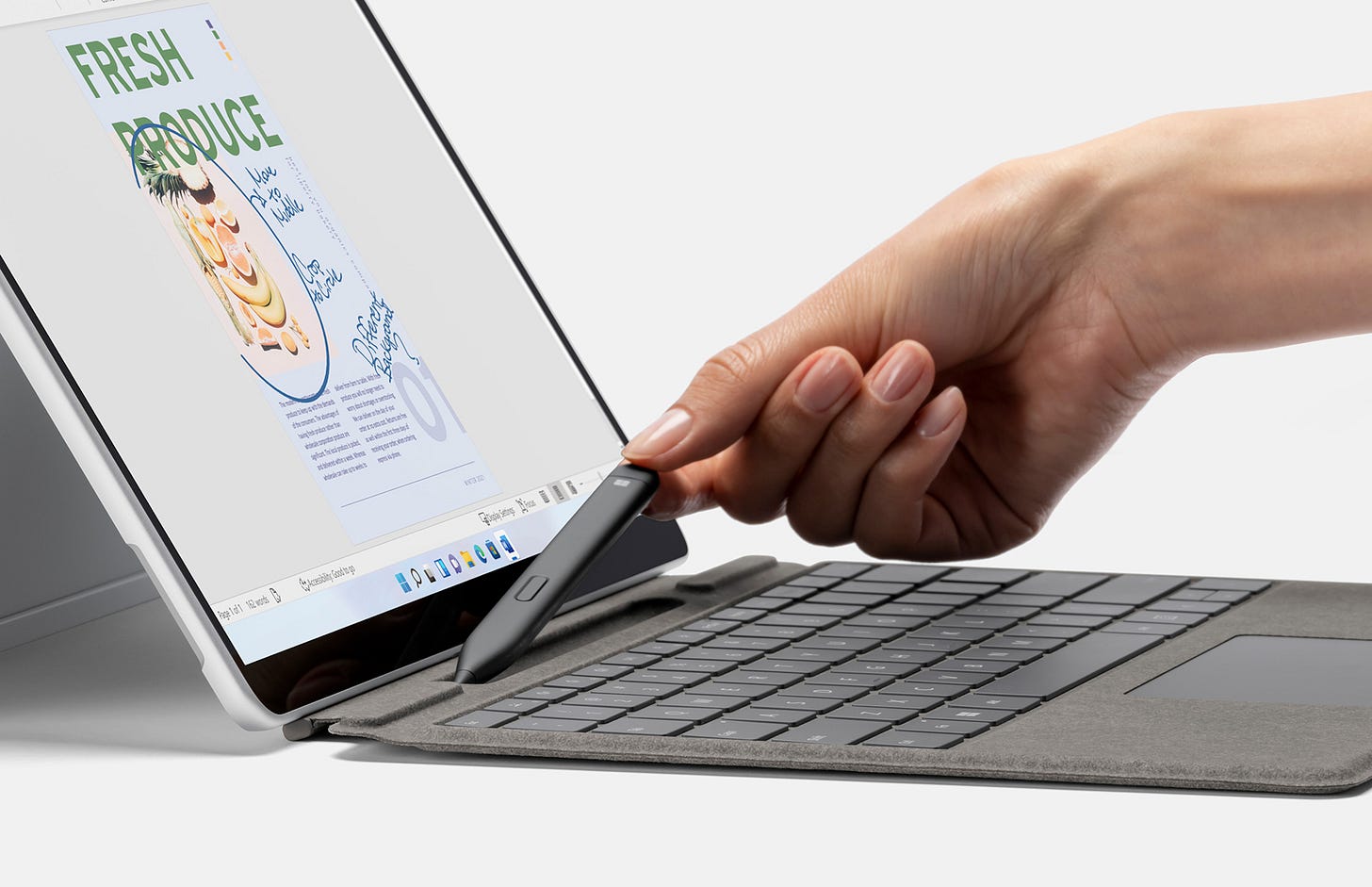Sree’s newsletter is produced w/ Zach Peterson (@zachprague). Cartoon by Nick Anderson, Pulitzer Prize winner.
Scroll down for Read Something; Watch Something; and a weekly tech tip from Robert S. Anthony (@newyorkbob).
TUNE IN: Our #NYTReadalong this week was Jeanne Pinder, creator of Clear Health Costs, who spent 23 years at the NYT (see recording). Recent episodes: Johnette Howard, who collaborated on Billie Jean King’s new bestselling autobiography; Peter Marks, Washington Post chief drama critic #WaPoReadalong; Sarah Maslin Nir, NYT reporter and author. The NYTReadalong is sponsored by Muck Rack.
My Digimentors team is working with companies and nonprofits around the world to create virtual and hybrid events. We’ve worked on events for 50 people and 100,000. See our updated brochure. Don’t cancel or postpone your conference - contact us! sree@sree.net
***
The Wall Street Journal - and Columbia Journalism School alum, Jeff Horwitz (@JeffHorwitz) and colleagues - should certainly win a Pulitzer or four for its latest investigative series on Facebook. Some of the revelations are new. Some we already knew about - which may be the most damning aspect of the whole thing.
Among the things in the series:
There is a wholly separate and unique content moderation system (a generous use of the term for sure) for elite users. The effects of this are obvious to anyone who uses Facebook even casually. People with huge audiences can say pretty close to anything they want about whatever they want. On its face, that sounds fine. But, misinformation and outright lies are rampant on the platform, and FB’s best move was to clumsily staple a “click here for more Covid info” button to the post. Now, according to some incredible reporting at The Journal, we know a lot more.


As is to be expected, Instagram is absolutely horrible for the mental health of its users — especially teenage girls.
And, of course, it’s changing our politics and how political parties operate and campaign digitally.


And today, Jeff and Georgia Wells (@georgia_wells) have another story out: FB’s efforts to attract teens goes beyond Instagram Kids.


Again, what hurts the most about all of this is that it all sounds so familiar. I feel like I’ve written about the latest FB controversy so many times that I’m not sure what counts as controversial anymore.
These WSJ reports are absolutely awful for FB, and it appears that Congress will hold hearings or more. But, is it all just noise…again? People have known about the potential negative effects of social media on young people for years. We’ve seen over and over again what it takes for people with huge social followings to face platform-specific consequences for things that regular people get banned for all the time. And, we’ve certainly seen the effects of social media on our politics. Entire political movements have started, and succeeded (see: Donald Trump’s first term), on social media.
Casey Newton has a nice roundup of all of this, but I particularly like this part:
But what if it did the reverse? What if it invested dramatically more in research, and publicly pressured its peers to join it? What if Facebook routinely published its findings and allowed its data to be audited? What if the company made it dramatically easier for qualified researchers to study the platform independently?
This would be a crucial first step, and FB needs to do it immediately. In the company’s official response, Nick Clegg (@nickclegg), FB VP of Global Affairs, says that the company does a lot of research like this, but he doesn’t say much about the findings or how open FB is to publishing their data in more transparent ways.
I’ve never called for a boycott of FB or told people to leave in droves. I’ve always said that I want to stay and make them fix the products I use every day: FB, IG, WhatsApp, Messenger. This note yesterday from a young Latino small-business owner who accidentally lost FB access reminds me that FB, for all its problems, is also an essential business tool and lifeline for millions:
To put it simply, I cannot survive as a business and a Social Media Strategist without Facebook. I have recently made the transition from having a day job to being a small business owner/social media strategist full time. This threatens to undo all the progress made and might just destroy my small business.
It’s a utility. We don’t boycott our local power company when it screws up - we force it to get better, more useful and safer for everyone.
- Sree
Read Something
Everything that’s happening now — overcrowded ICUs, Covid19 outbreaks everywhere, etc — is completely avoidable. Now, once again, we are a country tasked with overcoming a pandemic. Please get vaccinated!
Tech Tip: Microsoft’s Surface Pro 8 Paves High-Speed Road to Future
By Robert S. Anthony
Each week, veteran tech journalist Robert S. Anthony shares a tech tip you don’t want to miss. Follow him @newyorkbob.
Microsoft’s Surface line of convertible mobile PCs has seen quite the evolution since 2012. The first Surface came with a watered-down version of Windows, received lukewarm reviews and sold miserably. Recent Surface units, however, have been regarded as among the best in their class. One new addition, the powerful Surface Pro 8, doesn’t disappoint—at least on paper.
For starters, the Surface Pro 8’s 13-inch 120Hz PixelSense touch display is larger and faster than the 12.3-inch, 60Hz touchscreen on the 2019-vintage Surface Pro 7. The new unit’s 11th-generation Intel Core i5 or i7 processors and Intel X Graphics chips give the Surface Pro 8 up to 40 per cent more processing muscle and 74 per cent faster graphics than the Surface Pro 7, according to Microsoft.
Connectivity in the Surface Pro line has vastly improved from the standard USB-A port and rarely used Mini DisplayPort in the Surface Pro 6, to the USB-A and more useful USB-C ports in the Surface Pro 7 to the two ultrafast Thunderbolt 4-enhanced USB-C ports in the Surface Pro 8. That’s very good news for video editors or anyone moving large chunks of data in and out of the unit.
The Surface Pro 8 maintains the classic good looks of its older siblings with its thin profile and adjustable rear kickstand. The 5MP front and 10MP rear cameras, twin Studio Mics and two-watt speakers with Dolby Atmos support are well-suited for teleconferencing and remote meetings.
The new Surface Slim Pen 2 provides mini vibrations that mimic the feel of a real pen as it glides across the screen, according to Microsoft. The pen can store and charge wirelessly in a small nook in the detachable Surface Pro Signature Keyboard, which doubles as a screen cover. Unfortunately, as with older Surface Pros, the pen ($130) and keyboard ($180 alone; $280 with pen) cost extra.
The Surface Pro 8 starts at $1,100 for a Core i5 unit with 8GB of RAM and a 12GB solid state drive (SSD) to $2,600 for a Core i7-based device with 32GB of RAM and a 1TB SSD.
The Surface Pro 8, and other Surface family units introduced by Microsoft last week, will hit store shelves Oct. 5—the same day as the debut of Windows 11, which will of course come preinstalled in the Surface Pro 8.
As with any device built overseas, it remains to be seen if Microsoft will be able to get around current supply chain issues and keep up with demand as students return to classes and offices reopen. Stay tuned.
Listen to Something
It’s worth listening to Kara Swisher discuss Facebook’s latest mess.


Watch Something
“Black Girl Nerds” is a guide to pop culture from the lens of “nerdy Black women.” Even if you’re not nerdy nor Black nor a woman, you’ll enjoy their content. My colleague Rose Horowitz (@RoseHorowitz31), who produces my weekly pandemic show and She’s On Call, now has her own show, Women to Follow and, she interviewed Jamie Broadnax (@jamiebroadnax), founder of Black Girl Nerds and executive producer of their excellent podcast.
Odds & Ends
🗞 TUNE IN: Our #NYTReadalong this week was Jeanne Pinder, creator of Clear Health Costs, who spent 23 years at the NYT (see recording). Recent episodes: Johnette Howard, who collaborated on Billie Jean King’s new bestselling autobiography; Peter Marks, Washington Post chief drama critic #WaPoReadalong; Sarah Maslin Nir, NYT reporter and author. The NYTReadalong is sponsored by Muck Rack.
The NYTReadalong is sponsored by Muck Rack. Interested in sponsorship opportunities? Email sree@digimentors.group and neil@digimentors.group.
The Readalong is followed, on Sundays at 11 am-noon ET, by a medical show I’m co-executive producing with surgeons Sujana Chandrasekhar, M.D. (@DrSujanaENT), and Marina Kurian, M.D. (@MarinaKurian), called She’s On Call (watch live or later). Here’s the Apple Podcasts version.
After 250 episodes in 250 days, my global show has moved to a weekly cadence. The best way to know when I’m on the air and see all my archived shows is to subscribe to my YouTube channel or my Whatsapp alerts.
👀 Did we miss anything? Make a mistake? Do you have an idea for anything we’re up to? Let us know! Let’s collaborate! sree@sree.net











Great summary of the Facebook exposé